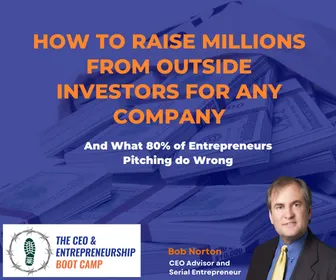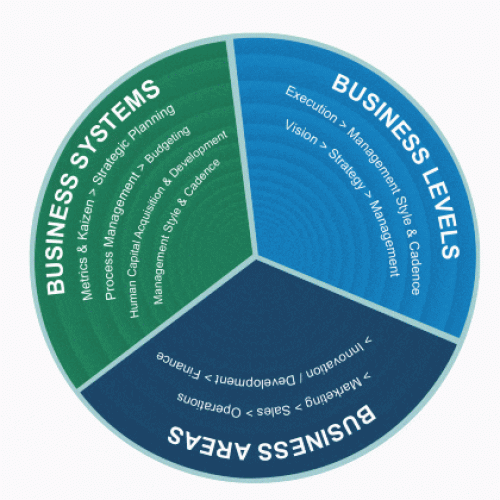Choosing the individuals who lead your organization is an unparalleled decision of utmost importance. They hold the power to hire and approve every other member within the company, establish its values, and make critical decisions that determine its daily success or failure.
When it comes to senior-level hires (VP and above), where a single mistake can cost six figures, it is imperative to follow a structured hiring approach encompassing the following elements at all times.
First and foremost, gain a comprehensive understanding of the direction the Board of Directors envisions for the company in the upcoming years. Assess how the existing management team reflects the necessary skills and identifies any gaps. Furthermore, ensure the availability of resources essential for growth. While defining these aspects at a macro level is relatively straightforward, it may be beneficial to enlist the assistance of a consultant to provide a quick assessment, aligning your vision with potential recruits. Investing in this initial step will pay dividends, guiding your recruitment efforts and mitigating unnecessary risks.
Develop a meticulous job description that outlines specific attributes and personality traits required to drive the company towards its future goals. If a complete vision or plan is lacking, consider developing an interim executive strategy, taking into account the depth and skills of the current management team. Prioritize specific personality traits and past success in relevant functions, placing more weight on these criteria than education, previous experience in prestigious companies, or popularity. This process requires the involvement of the most senior person available to ensure adherence to the established priorities.
Seek input and feedback from the Board and senior executives who will be working closely with or under the new executive. Circulate the job description among them, encouraging their comments and insights. Their perspectives will enrich the selection process.
Establish an interview process and sequence. Determine who will interview the candidate, who will possess final veto power or ultimate hiring authority, and which individuals will provide courtesy interviews without significantly influencing the decision due to their lack of relevant experience. Many companies falter by assigning people without the necessary expertise to screen potential candidates. Leverage your Board and network to involve individuals with direct experience in the skill set you are seeking during the initial interviews. Recruiters often only compare criteria on paper and may lack firsthand experience in the role, leading to less credible opinions about the candidate’s ability to perform. It is crucial that a high-level HR or personnel representative does not conduct an in-depth interview with the senior executive, as this may discourage top candidates who could perceive the organization as excessively political. The HR or personnel representative should solely coordinate the interviews, lacking the skill set required for screening senior-level candidates.
Following each interview, convene the team immediately to discuss their impressions of the candidate. This meeting can be conducted by phone if necessary. The senior executive in charge of the final hiring decision should structure and guide the review process, emphasizing the key elements crucial for the executive’s success in the role. Personality and other subjective attributes should not overshadow the primary focus, as these factors tend to dominate discussions and opinions. While compatibility is essential, skill set alignment and suitability for the specific position carry greater significance. For instance, an accounting position may require a detail-oriented and conservative personality type, while a sales role necessitates strong interpersonal skills, resilience in the face of rejection, and effective time management to achieve results.
Prioritize networking as the first step in the recruitment process, with advertising considered a secondary option. Only resort to executive recruiters as a last resort if suitable candidates cannot be found through the initial search. It is not uncommon for companies to spend exorbitant fees on recruiters despite finding the ideal candidate directly. Remember that less than 15% of positions are filled through executive recruiters. You can conduct a confidential search independently using techniques such as a P.O. box, conducting interviews at directors’ homes, and implementing non-disclosure agreements.
Continue interviewing until you have at least three strong candidates, but endeavor to compress the interviews into a short timeframe. The most exceptional candidates are often swiftly sought after by other organizations, making timely action crucial. Employing an interim executive can provide a temporary solution while waiting for a superior candidate. Maintain this iterative process until the right candidate is identified. Compromising in this aspect can prove exceedingly costly, so it is essential not to rush or succumb to external pressures.
Thoroughly check references, not solely for verification but also to gain insights into the candidate’s strengths, weaknesses, and their ability to be managed or work with others effectively. Additionally, seek referrals from individuals not provided by the candidate but accessible through your own network. These references offer superior perspectives as they are not biased, prepped, or selectively chosen to present the idealized work experience and perception. It is crucial to recognize that everyone possesses weaknesses, and a reference who fails to acknowledge any may not be a reliable source.
Take the necessary time to negotiate a comprehensive package. Exceptional candidates understand their market value and will expect a fitting compensation package. Hiring an executive who undervalues their worth may raise doubts about their ability to negotiate on behalf of your company. Remember that the negotiation and market knowledge skills they bring to the table will benefit your company exponentially once they join, making it worthwhile to patiently offer fair market value or more to secure top-quality candidates.
Avoid being rushed or compromising due to day-to-day problems. Getting the hiring process right sets the foundation for everything else to fall into place. Conversely, making a poor choice in this regard virtually guarantees failure. Utilize temporary solutions to bridge the gap, allowing three to six months for the selected candidate to commence their role. Regrettably, many individuals overlook behaviors, attitudes, and the capacity to learn during the selection process, as these attributes are more challenging to assess in interviews. However, these factors prove to be the most critical indicators of long-term success.
 | Learn more about our Growth and Scaling (GSP) |
For a free video consultation call on what your |
While knowledge and experience are essential for certain positions, it is the behavior of individuals that truly generates exceptional long-term results. Intelligence, work ethic, self-motivation, learning ability, and the desire to improve are characteristics that define outstanding employees in the long run, surpassing the significance of experience or accumulated knowledge.
To support clients in making informed hiring decisions, we offer a list of the best reference questions, exclusively available to our clients. Publishing these questions openly can diminish their effectiveness and value. Since evaluating candidates without these skills poses significant challenges, seek assistance from experienced professionals who have achieved notable success in the specific area of expertise and company stage. Mr. Norton is available for executive candidate interviews, providing a detailed report on qualifications, for a flat-rate fee of $200. Additionally, we recommend an executive testing service that offers a cost-effective method to mitigate hiring risks.
Advice from a groundbreaker and Nobel Prize winner on human capital, Gary S. Becker:
Gary S. Becker, the esteemed recipient of the Nobel Memorial Prize for Economic Science in 1992, serves as a Professor of Economics and Sociology at the University of Chicago. He is also a Senior Fellow at the Hoover Institution and University. Becker’s expertise encompasses human capital, the economics of the family, and economic analysis of crime, discrimination, and population.
It is crucial to remember that the fundamental resource within any company is its people. Bill Gates famously stated that removing the top thirty employees from Microsoft would render it an ordinary company. This truth extends beyond companies and applies to nations as well. In the New Economy, our reliance on human capital has increased rather than diminished. Our economy today is heavily dependent on human capital.
The most successful companies and nations will be those that effectively and efficiently manage their human capital. This involves investing in employees, encouraging them to invest in themselves, fostering a conducive learning environment, and recognizing the value of social capital.

Get Access to the Replay Now
How to Raise Millions from Outside Investors for any Company – Learn the 30 other sources of capital beyond angel and VC and how to prepare a company and get it into the top few percent investors see.
THE MOST COMMON HIRING MISTAKES TODAY
We also have a list of the best reference questions, made available only to clients because publishing these can defeat their purpose and value too quickly. Since it is impossible for someone without these skills to evaluate a candidate well, you must get help from someone with experience and significant success in that area of expertise and at that stage of company development. Mr. Norton will interview executive candidates and provide a report on qualifications for a $200 flat-rate fee. We also recommend an executive testing service that is a cheap and effective way to manage your hiring risk.
I also think the best companies will set up human capital accounting systems. Companies don’t have to do that under present tax law because you can expense all your expenditures on human capital, but in order for a company to know more about just what human capital is costing and what the payoff is, they want to track and assess the return on investment. I can also foresee them publicly reporting what they spend and invest in this area. In this age when human capital is such an important form of capital, how could they not want to do that?
Bob Norton is a long-time serial entrepreneur, CEO, and investor who founded six companies with four exits that returned over $1 billion to investors for a 25X ROI. Two others are still in development. He has trained, consulted, and advised thousands of entrepreneurs, CEOs, and boards since 2002. Mr. Norton works with companies to 2X to 10X growth rates and valuation using AirTight Management™, the world’s most comprehensive leadership operating system. He also helps companies raise capital to fund growth. He is also the founder of The CEO Boot Camp™and Entrepreneurship University™ for early-stage companies that have not reached product-market fit and $1M ARR.
What can we help you with today? Scaling, training, consulting, coaching?














